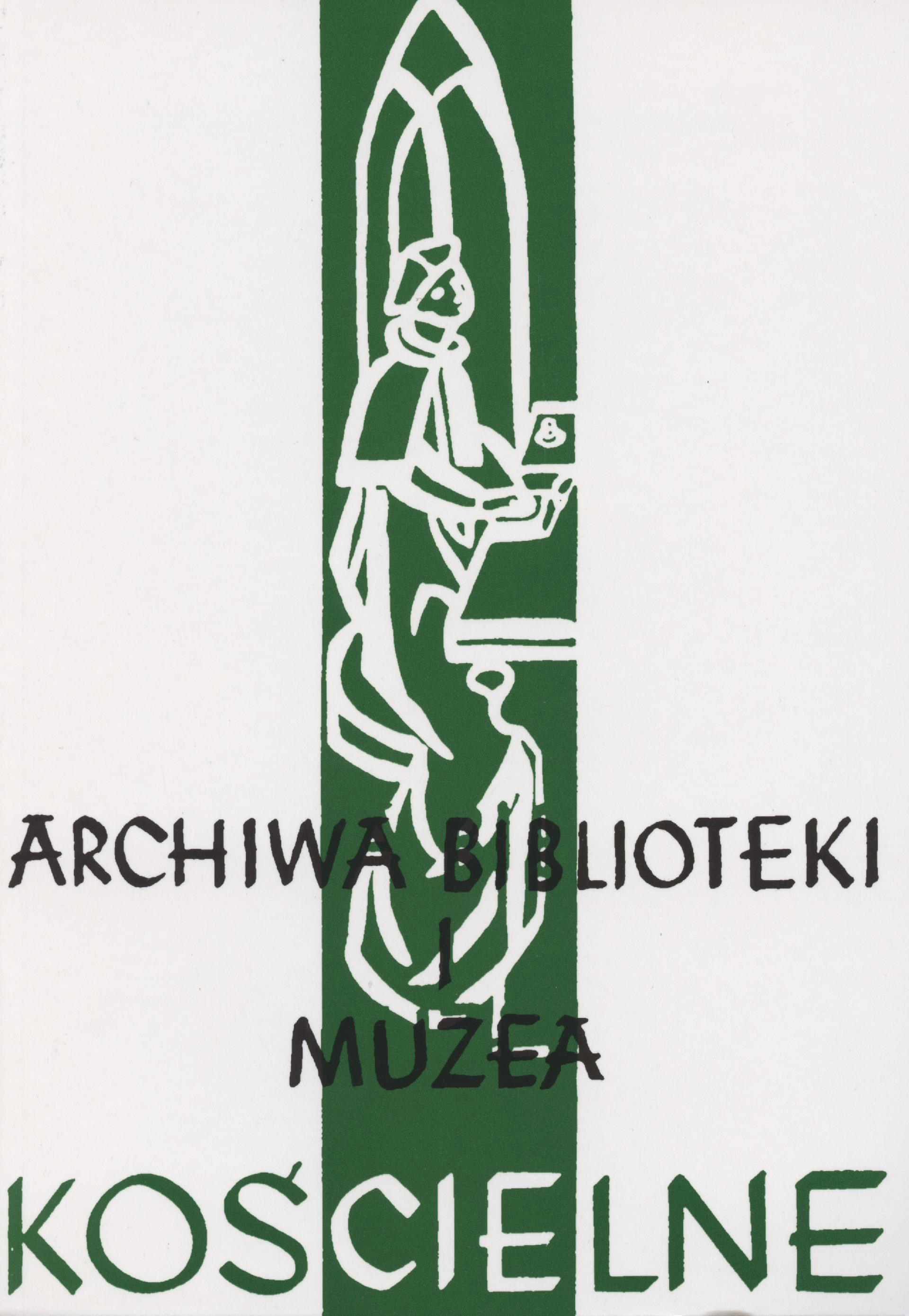Ślady działalności oficyn jezuickich w Wilnie i Braniewie na przełomie XVI i XVII wieku w zbiorach biblioteki „HOSIANUM” w Olsztynie jako przykład procesów integracyjnych w Rzeczpospolitej Obojga Narodów
Traces of the activity of Jesuit Publishing Houses in Vilnius and Braniewo at the turn of the 16th and 17th centuries in the collection of ‘Hosianum’ Library in Olsztyn as an example of integration processes in the Polish–Lithuanian Commonwealth
Author(s): Tomasz GarwolińskiSubject(s): General Reference Works, Library and Information Science, Theology and Religion
Published by: Katolicki Uniwersytet Lubelski Jana Pawła II - Wydział Teologii
Keywords: Jesuit College in Braniewo; Braniewo publishing house; Jesuit College in Vilnius; Vilnius Academy; Vilnius publishing house; Library of the ‘Hosianum’ Higher Theological Seminary of the Warmia Metropo
Summary/Abstract: The library of the ‘Hosianum’ Higher Theological Seminary of the Warmia Metropolis in Olsztyn is the ‘descendant’ of the library of the Jesuit College in Braniewo, founded in 1565 by Cardinal Stanisław Hozjusz. It is not surprising that a large number of its historical book collection was printed in Jesuit publishing houses in Vilnius and Braniewo. The article is an attempt to discuss the old prints from the turn of the 16th and 17th centuries, which were produced in those publishing houses and preserved in the collection of the seminary library, as a reflection of the Jesuits’ activity in the context of broader religious, social and cultural processes, considering the books as an element of cultural heritage, but also as a carrier of culture, knowledge and science. The author was prompted to do so by the 450th anniversary of the Lublin Union. Having abandoned his Calvinistic confession, Mikołaj Krzysztof Radziwiłł, nicknamed ‘the Orphan’, moved his printing workshop from Brest to Vilnius. The printing house was owned by M.K. Radziwiłł, but it operated under the care of the Jesuits and produced almost exclusively books of the Jesuit community. The duke probably handed over the publishing house to the Jesuit college in 1586. The Vilnius printing house is one of the oldest Jesuit workshops in Poland. The most famous authors of printed materials embossed there included: Piotr Skarga, Emanuel Vega, Stanisław Grodzicki and Marcin Śmiglecki. The dissertation of P. Skarga, Pro Sacratissima Eucharistia (1576), launched the operation of the Vilnius publishing house. One of the most interesting and valuable prints from the publishing house in Braniewo is Agenda Parva (1622). The work was intended for numerous Jesuit missions covering not only the Lithuanian province, but also Livonia. It is not only the sole surviving copy in Poland, but also in the world. An interesting and quite rare print from the Braniewo printing house is Hierosolymitana peregrinatio. It is the first Polish printed report from a journey to the Holy Land. It was written by M.K. Radziwill. An example of cooperation between the publishing houses in Braniewo and Vilnius is the so-called Braniewo binding, which was developed in the last quarter of the 16th century. The tools used to produce it were taken over by a bookbinder later operating in Vilnius and associated with the Vilnius academy, and were in use until 1650.
Journal: Archiwa, Biblioteki i Muzea Kościelne
- Issue Year: 2020
- Issue No: 113
- Page Range: 117-144
- Page Count: 28
- Language: Polish

